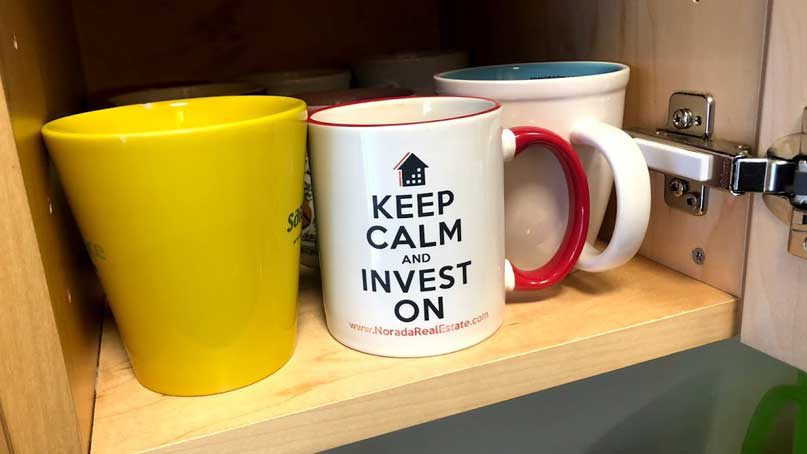Costa Rica FIRE made a guest appearance on the Real Wealth podcast, which focuses on real estate investing. We were excited to be invited onto the show because we look to Real Wealth as a source for real estate news and ideas and even traveled to their income property showcase in Cleveland last summer. (It was a great example of one of our bleisure trips, where we mix business and pleasure – Cleveland was a blast!)
The episode is titled, Becoming Job Optional In Your 40’s, and the synopsis opens with the tantalizing premise:
They’ve come a long way — from high school sweethearts to long-time spouses who’ve reached financial independence. And, they have made it happen with real estate.
We taped the episode pre-pandemic, so what has changed?
Thankfully, we are still job optional, but we are focused on growing income
The pandemic and its economic fallout has definitely stressed our FIRE plan. Our main income streams are our consulting business, long-term rental real estate in the US, vacation rentals in Costa Rica and our paper assets (stock market investment). The consulting revenue is what we draw first, and we are laser-focused on maintaining, and ideally growing, this income because of the slowing economy, decrease in travel, and stock market volatility.
We are conservative and are planning for zero drawdowns from any other income source. In fact, we are working to increase our cash reserve in anticipation of having to float some of our businesses.
For example, with borders to Costa Rica closed, our rentals can only source from local tourists or need to switch to being rented long-term. Long-term rentals earn a much lower rate than vacation rentals, so we have not made that pivot. Luckily, our carrying costs for the properties are low, and we had most of the annual high season already on the books for this year.
Depending on how long the borders stay closed and travel stays depressed, we may not earn enough to cover those carrying costs going forward, so need reserves or income elsewhere to make up for it.
We’re still using analytics to battle our emotions – and it’s still hard

In the podcast, Scott mentioned panic-selling one of our Asheville properties when we were new to real estate. We’re not going to panic-sell any of our properties now, as we have long-term projections and still believe them. That said, we can still panic, even if we don’t sell! I don’t worry day-to-day about our real estate, but I definitely have been feeling a general malaise during the pandemic. It doesn’t help that we were hoping to do a summer trip to Costa Rica, and borders are still closed.
Moving to Florida, where most of our long-term rentals are, has made me feel more comfortable, even though that’s emotional and irrational. We have property managers so being physically closer to our properties shouldn’t matter, but it does! Luckily, economic projections for the Jacksonville area are strong, so that complements the emotional factor of being closer – I can say we’re relying on the analytics, but I know that being on-the-ground helps.
We still hope to add more international property
We divulged in the podcast that more international real estate was on our radar. We actually had an April scouting trip to Portugal and Spain set up – of course, this was cancelled.
While I don’t have any insider intel on what will happen with travel, I know that we still want to travel. I also know that we want to do slow travel where we can stay in one place (a country or part of the world) for a while. With quarantine mandates or recommendations being a reality in the short-term, owning in Europe where we know we want to visit each year would help with slow travel. In this way, more international real estate could still make sense for us.
We also still see international real estate as a good long-term investment. In the short-term, travel may have declined. But in the long-term, I’m bullish on the work-from-home trend being here to stay. Once that happens, professionals will realize they can work from anywhere, and interest in vacation-like places, (like Tamarindo, Costa Rica or the Algarve region in Portugal) will do well.
Legacy wealth is a bigger focus post-pandemic

Our real estate portfolio was always meant to be not just for us and our immediate income, but something to share with our kids and become a legacy wealth vehicle. Legacy wealth seems even more important now. Our oldest has graduated into a terrible job market, and our youngest has finished her first year of college and entered a summer with limited internship opportunities. My consulting work is career-focused, and I see the traditional career path as less viable. People will need to be more entrepreneurial to thrive in the increasingly volatile job market.
Entrepreneurship has incredible upside, but it also carries the downside of unpredictability and the difficulty to start and build. Having a real estate portfolio that provides cash flow across generations will help smooth out the unpredictability and provide a runway for the generations starting out. Seeing a pandemic play out and its impact on jobs, the market and daily living reinforces that we want a long-term wealth plan that can survive and support generations.
We were asked for a Hot Tip on the real estate podcast, and our hot tip remains unchanged
There are no hot tips! (You can hear this part of the interview at minute 17:11.) Real estate is hyper-local so broad generalizations in making investment decisions will not be helpful.
=============
Do you agree? Has your outlook on real estate changed pre- v. post-pandemic?


 We are Scott and Caroline, 50-somethings who spent the first 20+ years of our adult lives in New York City, working traditional careers and raising 2 kids. We left full-time work in our mid-40’s for location-independent, part-time consulting projects and real estate investing, in order to create a more flexible and travel-centric lifestyle.
We are Scott and Caroline, 50-somethings who spent the first 20+ years of our adult lives in New York City, working traditional careers and raising 2 kids. We left full-time work in our mid-40’s for location-independent, part-time consulting projects and real estate investing, in order to create a more flexible and travel-centric lifestyle.  Financial independence and early retirement is not something we originally focused on, but over time realized it was possible. Our free report,
Financial independence and early retirement is not something we originally focused on, but over time realized it was possible. Our free report, 






